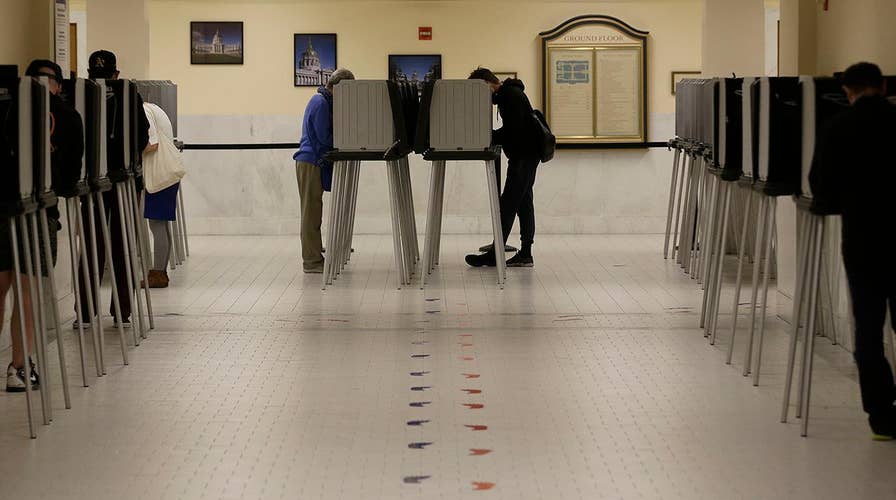Voters in six states to decide on Marsy's Law
Marsy's Law will be on the ballot in Florida, Virginia, Kentucky, Oklahoma and Nevada. Law increases the rights for families of crime victims.
In 1996, an intruder broke into Monica Bisbee’s home and attacked her.
“I woke up in the middle of the night to a man standing in my stairwell,” she told Fox News’ Douglas Kennedy. Holding her young son in her arms, she says her attacker “taped up my eyes and my mouth, taped up my legs.”
Twenty years later she says she’s being attacked again, this time by a system she says cares more about the rights of the accused than the rights of victims.
The man convicted of breaking into her home was given her home address and her work address, all ostensibly so he could stay away from her. But, Monica said she has no idea where he might be. In fact, she’s not allowed to know.
Exactly why she’s supporting a ballot measure in Nevada that would give victims of crime a constitutional right to know the whereabouts of their alleged attackers at all times.
It’s called Marsy’s Law, and it’s currently part of the state constitution in five states and is being considered in six more – Georgia, Florida, Virginia, Kentucky, Oklahoma and Nevada. This initiative was championed by Henry Nicholas, the sister of Marsy Nicholas, who was murdered in 1983 by her ex-boyfriend. That ex-boyfriend was released from jail and confronted his victim's family, who were unaware that he had been released.
Among other things, Marsy’s Law guarantees crime victims the right to be heard in public proceedings, to receive reasonable notice of release of the accused and to confer with the district attorney.
Rights included in state constitutions.
Benita Dodd, from the Georgia Public Policy Foundation, said it will add costs, give victims unlimited power and will lose the presumption of innocence – all based on emotional pleas.
“This has me worried because it is so difficult to overturn a constitutional amendment,” Dodd explained. “We should not base our legislation or our constitutional amendments on emotions. That clouds our judgment. That clouds our entire rule of law.”
Bisbee disagrees. “I just want the same rights as the man who attacked me.”
Those rights, she said, just like his, should be in the constitution.













































